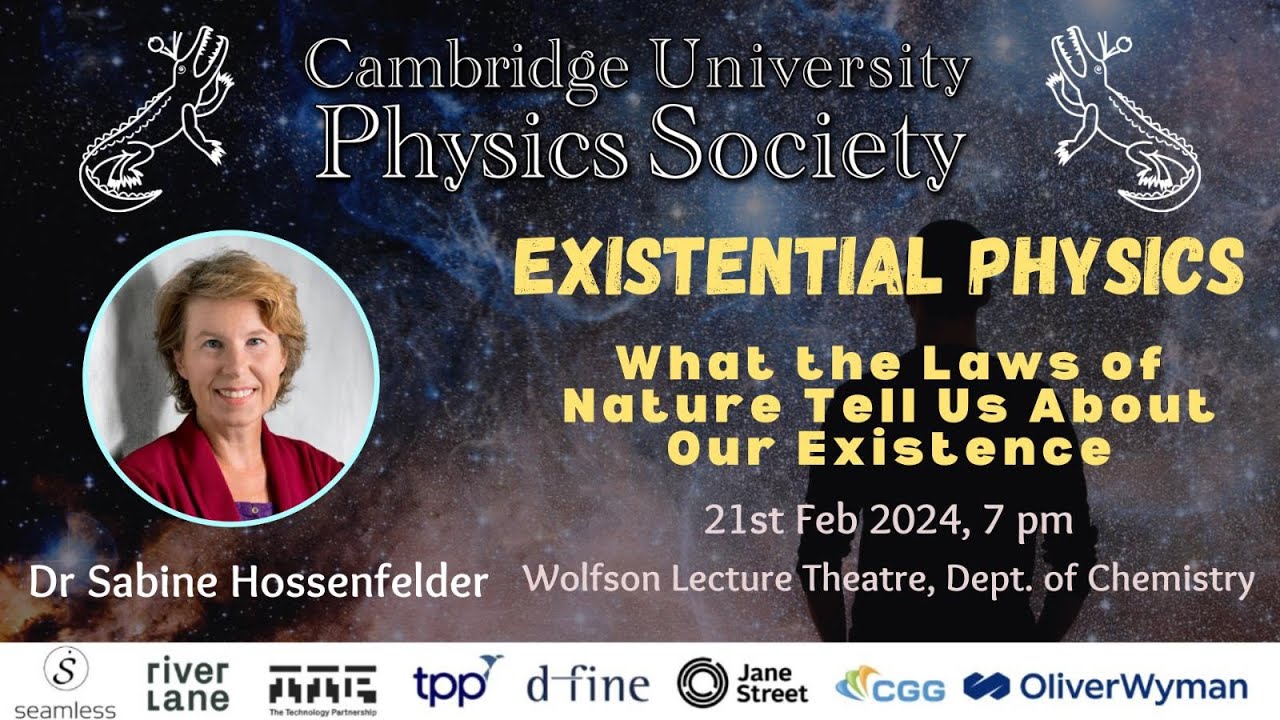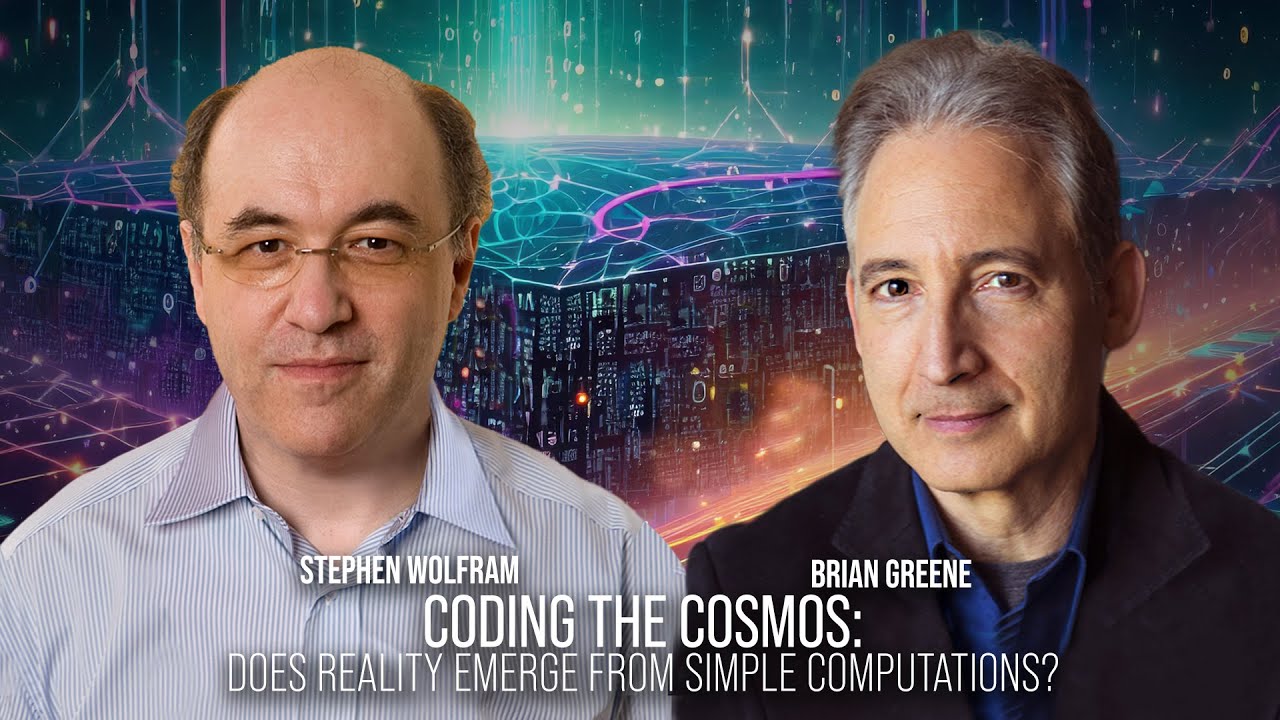"Philosophers Are USELESS!" Neil & Curt Clash on Physics
TLDRIn this thought-provoking dialogue, the speakers delve into the philosophical underpinnings of physics, exploring the implications of determinism and indeterminacy in classical and quantum physics. They discuss the Norton dome thought experiment, questioning the deterministic nature of classical physics and the role of philosophy in shaping scientific understanding. The conversation touches on the practicality of philosophical inquiry for scientists, the value of exploring the nature of reality, and the potential for multiple 'covers' of reality beyond the material world, hinting at the complexity and interconnectedness of philosophical and scientific pursuits.
Takeaways
- 🔄 The conversation discusses the indeterminacy in physical systems, specifically using the Norton dome as an example to illustrate the concept of determinism in classical physics.
- 🧐 The Norton dome thought experiment questions the traditional view of determinism by showing that a mass at the top of a frictionless dome can take off at any non-negative time, suggesting a lack of determinism.
- 🤔 The debate on the utility of thought experiments like the Norton dome for practicing scientists is presented, with the argument that while they may be of interest to philosophers, their practical application is less clear.
- 💡 The script highlights the importance of understanding the philosophical underpinnings of physics, as it influences the development of theories and the interpretation of physical phenomena.
- 🌌 The speaker emphasizes that physics is about understanding reality, but acknowledges the complexity and uncertainty inherent in defining what 'reality' actually is.
- 🔬 The role of philosophy in shaping the direction of scientific inquiry is discussed, with the mention of influential figures like Tim Maudlin and their views on the ontology of physical theories.
- 🛠️ The practical perspective of a scientist is contrasted with the more abstract considerations of a philosopher, with the scientist focusing on the application of quantum physics in building and improving technology.
- 🤷♂️ The speaker expresses a preference for focusing on the practical applications of physics rather than getting distracted by the philosophical questions about the nature of reality.
- 💭 The script touches on the idea that consciousness and its role in quantum mechanics is still a topic of much debate and uncertainty, with various interpretations offering different perspectives.
- 🚫 The speaker cautions against using poorly understood concepts to explain other complex phenomena, such as attempting to link consciousness with quantum mechanics without a solid understanding of either.
- 🌐 The discussion includes the consideration of materialism in modern science, questioning what it means and how it is defined within the context of physical theories.
Q & A
What is the indeterminacy discussed in the context of the Norton dome?
-The indeterminacy refers to the uncertainty about how a mass at the top of a frictionless dome, characterized by a specific curve, can take off at any non-negative time, implying that both the initial state and the action of taking off involve elements of unpredictability.
Why is the setup of the thought experiment with t equals minus t considered useful?
-This setup is useful because it allows for an exploration of the system's behavior under time reversal, providing insights into the fundamental properties of the system and challenging the notion of classical determinism.
What does the conversation suggest about the utility of thought experiments for practicing scientists?
-The conversation suggests that while thought experiments can be of high interest to philosophers, their utility for practicing scientists might be limited unless they directly contribute to the understanding or advancement of physical theories and applications.
How does the script challenge the idea of classical physics being deterministic?
-It challenges this idea by discussing the Norton dome scenario, which shows that even in a classical system, there can be indeterminacy, suggesting that classical physics may not be entirely deterministic.
What is the role of philosophy in understanding physics according to the script?
-The script suggests that philosophy plays a significant role in understanding physics by embedding philosophical assumptions within physical statements and theories, and by prompting questions about the nature of reality and existence.
Why might a practicing scientist not be concerned with the ontological aspects of quantum physics?
-A practicing scientist might not be concerned with the ontological aspects if they are focused on practical applications and progress in the physical universe, rather than on abstract philosophical questions that may not directly impact their work.
What is the view of physics expressed by the speaker in the script?
-The speaker views physics as the study of matter, motion, and energy, aimed at predicting the behavior of systems to benefit civilization and intellectual pursuits, rather than solely as a quest for abstract understanding.
What does the script imply about the relationship between physics and values?
-The script implies that values, such as the desire for progress and the betterment of civilization, can influence the direction and focus of scientific inquiry, even within the field of physics.
How does the script address the role of philosophy in the history of physics?
-The script acknowledges that philosophy has played a significant role in the past, with examples like Einstein considering Mach's principle, but suggests that the influence of philosophy on modern physicists making actual discoveries might be less direct.
What is the perspective on the relationship between consciousness and quantum physics as discussed in the script?
-The script expresses caution about using consciousness, which is not well understood, to explain quantum physics, suggesting that it is unwise to explain one unknown with another and that such endeavors might be speculative.
What does the script suggest about the materialistic nature of modern science?
-The script suggests that modern science, particularly Western science, is highly materialistic, with little room for spiritualism, and that this materialistic perspective is deeply embedded in scientific inquiry and theories.
How does the script discuss the possibility of multiple 'covers' or perspectives on reality?
-The script uses the analogy of covering a sphere with open sets to suggest that reality might require multiple perspectives or 'covers' to be fully understood, implying that the physical or material world is just one aspect of a broader reality.
Outlines
🧐 The Norton Dome and Classical Physics Determinism
The first paragraph delves into a thought experiment involving a mass at the top of a frictionless dome, questioning the determinism of classical physics. It discusses the indeterminacy of the mass's initial position and the possibility of it taking off at any time greater than zero. The conversation explores the philosophical implications of this experiment, challenging the deterministic view of classical physics and prompting a reevaluation of what constitutes reality in the field of physics. The dialogue also touches on the practical utility of such thought experiments for scientists and philosophers, and the importance of understanding the underlying ontology of physical theories.
🔬 Philosophy and Physics: The Interplay of Ideas
The second paragraph examines the relationship between philosophy and physics, emphasizing the historical and ongoing influence of philosophical thought on the development of physics. It highlights the importance of understanding philosophical assumptions embedded within physical theories, such as materialism and the nature of spacetime. The discussion also touches on the various interpretations of quantum mechanics, including those related to consciousness, and the challenges of using poorly understood concepts to explain others. The paragraph concludes by acknowledging the contributions of philosophers to modern physics, with a nod to the founders of loop quantum gravity and the idea that reality may require multiple 'covers' for a complete understanding.
Mindmap
Keywords
💡Indeterminacy
💡Norton Dome
💡Determinism
💡Thought Experiment
💡Quantum Physics
💡Materialism
💡Philosophy of Physics
💡Space-Time
💡Consciousness
💡Loop Quantum Gravity
💡Mach's Principle
Highlights
Indeterminacy in both the initial state and the trajectory of a mass on a frictionless dome.
Asymmetric setup of a thought experiment involving time reversal.
Questioning the deterministic nature of classical physics based on the Norton dome scenario.
The value of thought experiments in advancing scientific understanding, even if primarily of interest to philosophers.
Physics as a pursuit to understand reality, with the acknowledgment of the unknown.
The importance of ontology in theoretical physics and its philosophical implications.
Practical scientists focusing on applications rather than fundamental philosophical questions.
Quantum physics as a field that is not easily understood or defined, with various interpretations.
The distinction between a physicist's and a philosopher's approach to understanding the universe.
The role of values in scientific pursuits and their impact on the direction of research.
Physics as a means to predict and exploit the behavior of matter, motion, and energy for societal benefit.
The multi-layered nature of scientific understanding, from physics to chemistry to biology.
Einstein's consideration of philosophical principles, such as Mach's principle, in his scientific work.
The influence of philosophy on modern physics and the training background of influential physicists like John Bell.
The debate on the value of armchair philosophy versus empirical laboratory work in physics.
The philosophical underpinnings of physical concepts like materialism and the nature of reality.
The possibility of reality being more complex than what is covered by physical theories alone.
The idea of an 'inner world' as a separate dimension of understanding, beyond the physical.
The founders of loop quantum gravity and their philosophical considerations on the nature of reality.
The importance of distinguishing between the contributions of philosophy and empirical science in physics.
Transcripts
Browse More Related Video

Why Quantum Physics Says There's a Multiverse

Sabine Hossenfelder - Existential Physics: What the Laws of Nature Tell Us About Our Existence

Coding the Cosmos: Does Reality Emerge From Simple Computations?

Unlock Your Potential In Manifesting, Money & The Mystical | Matías De Stefano

Mindscape 241 | Tim Maudlin on Locality, Hidden Variables, and Quantum Foundations

Richard Healey: Correlations, probabilities and quantum states
5.0 / 5 (0 votes)
Thanks for rating: